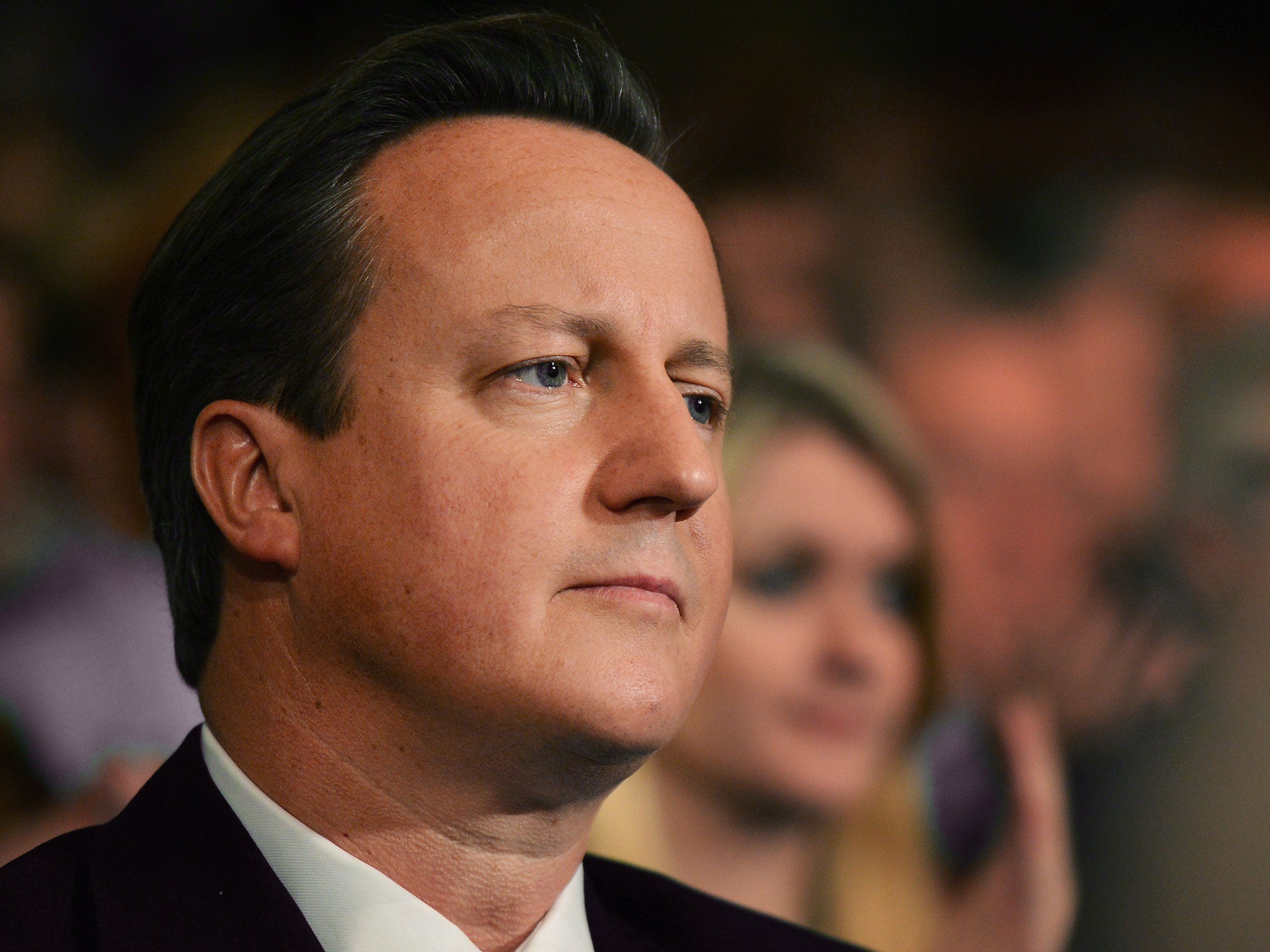Most voters see Tories as 'party of the rich'
Results also highlight dangerous 'gender gap' facing party

A majority of the public believes that the Conservative Party only represents the interests of the rich, according to a ComRes survey for The Independent.
The poll vindicates the warning last week by Nick Boles, the Planning Minister and a close ally of David Cameron, that "the single biggest problem the Conservative Party faces is being seen as the party of the rich." He said some voters like the party's policies "but they don't like us and they don't trust our motives", and that they had to be convinced that Conservatives are "not aliens from another planet."
Although his message was disowned by the Conservative high command, it appears that he was reflecting the public's mood. Some 51 per cent agree with the statement that "the Conservative Party only represents the interests of the rich," while 42 per cent disagree.
Almost one in five people (18 per cent) who voted Tory at the 2010 election agree with the statement, as do 10 per cent of current Conservative supporters. Women (54 per cent) are more likely to agree than men (47 per cent), highlighting a dangerous "gender gap" facing David Cameron.
The 18-24 age group is the most likely one to believe that the Tories only represent the rich. People living in the North of England and in Scotland are more likely to agree than those in other regions, but even in the Tory heartland of the South East, more people (48 per cent) agree with the statement than disagree (45 per cent).
According to ComRes, the public do not trust either Mr Cameron or Ed Miliband to protect the National Health Service. The Labour leader (33 per cent) is trusted by slightly more people than the Prime Minister (30 per cent). Some 56 per cent do not trust Mr Miliband, giving him a net rating of minus 23 points. Some 61 per cent do not trust Mr Cameron, making his net rating minus 31 points. Women have less confidence in both leaders than men do. Two out of three women (65 per cent) do not trust the Prime Minister on health, compared to 57 per cent of men. Some 58 per cent of women do not trust the Labour leader, while 55 per of men do.
It seems that Labour has a better chance of winning over new voters on health than the Tories. One third of current Tory voters (32 per cent) trust Mr Miliband to protect the NHS but only 14 per cent of Labour supporters trust Mr Cameron. Although Mr Miliband has the confidence of more people overall on health than Mr Cameron, Labour voters are less likely to trust him (61 per cent) than current Tory supporters are to trust their party's leader (68 per cent).
Amid growing fears of a "winter crisis" in the hospitals, attempts by ministers to blame Labour for today's problems in the health service appear to cut little ice with the public. Asked whether the present Government has a better record on the NHS than the previous Labour Government, 28 per cent agree but 57 per cent disagree.
Two thirds of people who voted Liberal Democrat in 2010 (67 per cent) say that the Coalition Government does not have a better record on health than the previous administration while only 19 per cent think it does. Even current Lib Dem supporters do not hold Labour responsible for the problems. By a margin of 55 to 26 per cent, they reject the idea that the Coalition has a better record than the previous Government.
Labour enjoys a five-point lead over the Conservatives, down from eight points a month ago. Labour is on 37 per cent (up one point on last month); the Tories on 32 per cent (up four points); the UK Independence Party on 11 per cent (down one point); the Liberal Democrats on nine per cent (down two points) and other parties on 11 per cent (down two points). These figures would give Labour an overall majority of 60 at a general election.
ComRes interviewed 1,002 GB adults by telephone between 22 -24 November. Data were weighted to be demographically representative of all GB adults. Data were also weighted by past vote recall. ComRes is a member of the British Polling Council and abides by its rules.
Join our commenting forum
Join thought-provoking conversations, follow other Independent readers and see their replies
0Comments